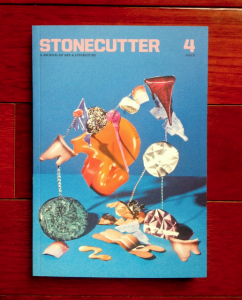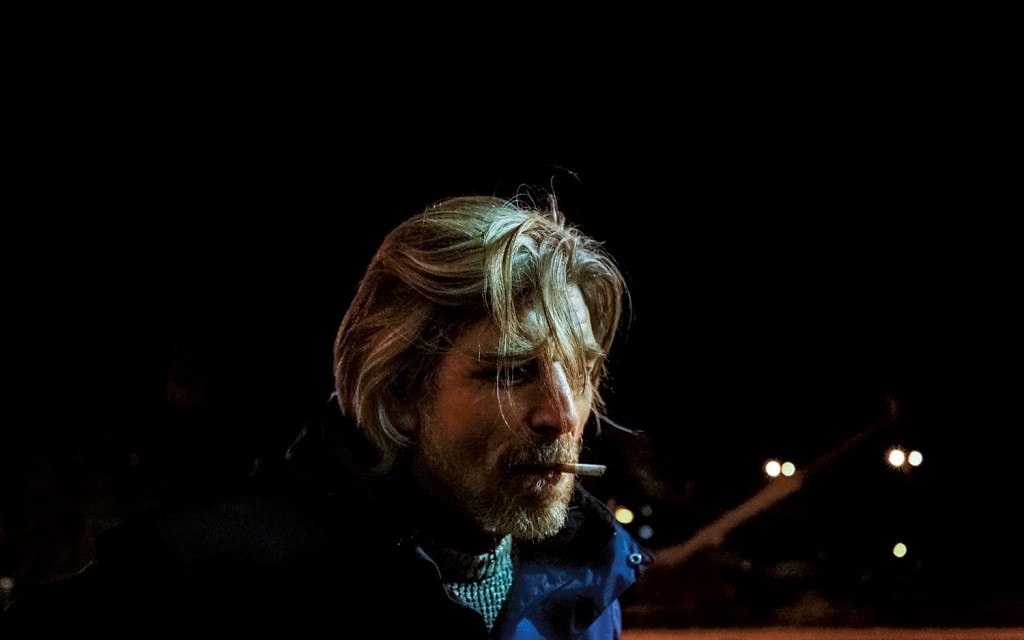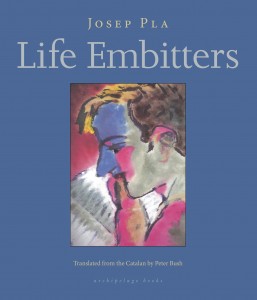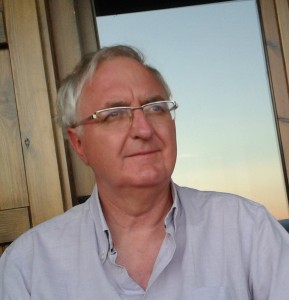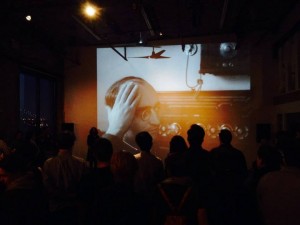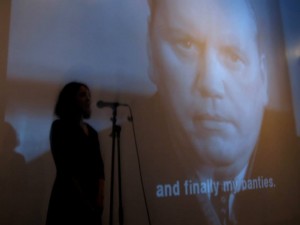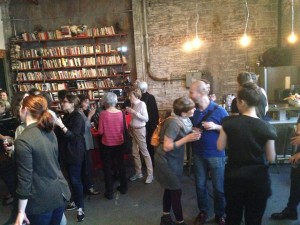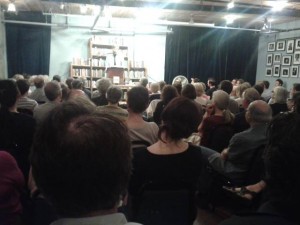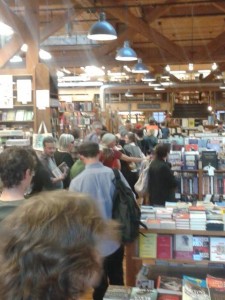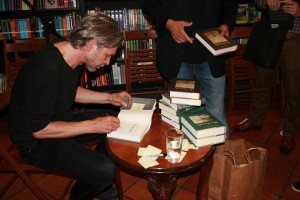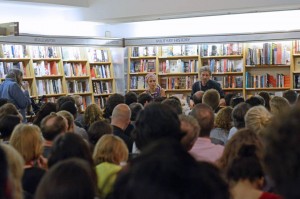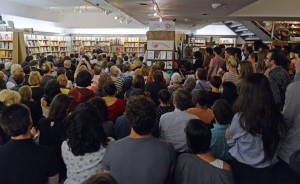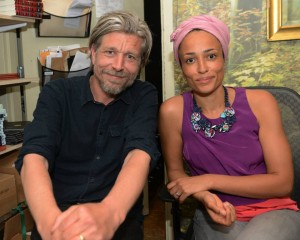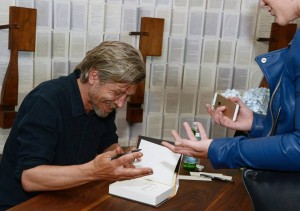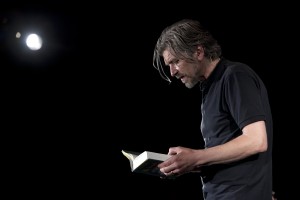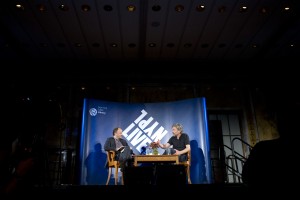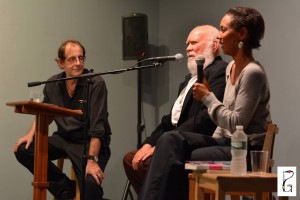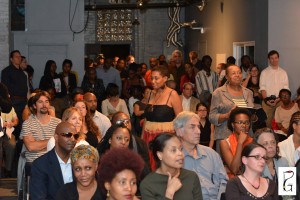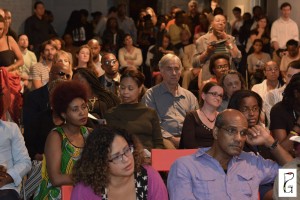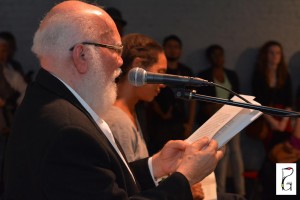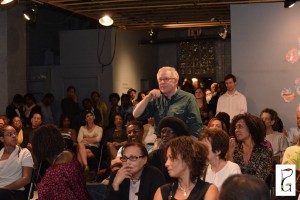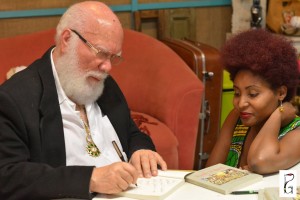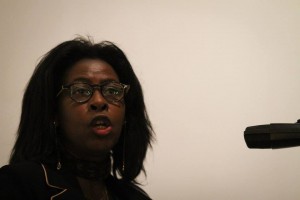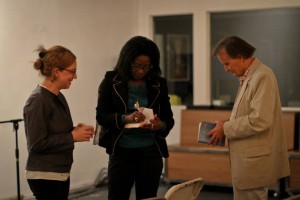This conversation with Norwegian author Karl Ove Knausgaard took place on Sunday, September 23, 2012, on a park bench not far from the bustle of the Brooklyn Book Festival. At that stage, only the first volume of Knausgaard’s masterpiece, My Struggle, had appeared in English. Earlier that day, Knausgaard had participated in a panel with writers Siri Hustvedt and Shelia Heti. Afterwards, at the panelists’ book signing, while hundreds of people waited patiently for a moment with the other authors, only a handful of people queued in front of Knausgaard’s table. I remember at the time being struck by the fact that, of those people who were waiting in line for Knausgaard, several of them carried Norwegian editions of books.
Since then, the second volume of My Struggle has been published in England and America, with the third on its way. Just as it did readers in Norway and across Europe, Knausgaard’s work has caught fire with Anglophone readers. It’s hard for me to think of another writer who has ascended to near-canonical status in such a short space of time. My Struggle confounds for having seemingly sidestepped all the usual artifices and apparatuses of fiction writing. It is—to borrow a term from the French writer Romain Rolland—a roman fleuve (river novel) that expands and contracts, flowing ever forward according to the inscrutable logic of memory. When I read Kausgaard, I’m convinced I know him better than I do my closest friends.
—Will Heyward, 2014
WH: When I read the passages in your book about wanting to be a famous writer, the opening line from an essay by Susan Sontag on W. G. Sebald came to mind: “Is literary greatness still possible?” Does your book pose the same question?
KOK: I can’t use the concept of greatness, but I can say this: I’ve read Roberto Bolaño, probably the last “great” author I’ve encountered, and what’s so hypnotic about his writing, especially 2666, is that feeling: “This is something new. I haven’t seen this before.” That’s what writing is about, I think. Writing should be an achievement that gives people the experience of seeing something they haven’t seen before. I don’t know what exactly. It has something to do with an approach towards the world that is both new and relevant. 2666 is absolutely relevant to us, and that’s what this idea of “greatness” is for me. Sebald is another example. He’s very, very different. At his best, he’s getting towards something like Bolaño, but it’s not as good. Sebald writes much more beautifully, and everything is better in his work, but it doesn’t have that sensational qual- ity of Bolaño.
WH: Is Bolaño an influence on you? In 2666, there’s a long section about a murdered woman told very plainly and repetitively, but which for that very reason is so overwhelming. Even though your subject matter is much more personal, the accumulation of details in My Struggle has a similar effect.
KOK: I read Bolaño’s book after I’d finished mine—Thank God! I didn’t read it until then because I knew his book would be good, and that reading it be- fore I had finished My Struggle would be dangerous. And I was right, I think. It was the same with a couple of films that I couldn’t see when I was writing. I had to wait to see Lars von Trier’s two most recent films. I couldn’t let my- self see them. As soon as I finished, I could see them.
WH: I have a theory about My Struggle, a book which has a lot to do with your father. His character is represented as a man who could say nothing about himself. You are a man who has said everything about himself. In writing this book, have you become the literal opposite of your father?
KOK: It’s a good reading, but I haven’t thought of that. It hasn’t occurred to me, but what you say might be true.
WH: Are you a self-conscious writer? Another quote that kept coming to me as I was preparing for this interview was from David Foster Wallace who, I think, once said something like: my work as a writer is to overcome selfconsciousness. Could that apply to My Struggle ?
KOK: Yes. I think that goes for everyone who’s writing or doing something. Talking about Lars von Trier, I heard that when he wrote Antichrist, he was drunk. That was his working process: locking himself up and getting drunk and writing. I think because he’s clever, and he’s so extremely clever that he has to escape from that. I think it’s the same with David Foster Wallace. He’s clever, but cleverness becomes his enemy. I think that’s an obvious thing if you watch what he’s doing.
WH: You just did a panel with Sheila Heti, whose novel—like yours— explicitly uses the people in her life as characters. I’ve heard her say in an interview that if her book had damaged her relationships, she would have considered it a failure. You’ve said that your book did damage your relationships. Would you have ever considered its success or failure in terms of its reception?
KOK: It’s almost the opposite for me. Not that I wanted to ruin anything, and I didn’t even think about that at the beginning of this project when I started writing. I tried to be as honest as possible, as straightforward as possible. I recognised early on that it was impossible to be completely honest, to be completely straightforward. I felt that in my body when I was writing and transgressing, crossing boundaries, and I would become physically ill. I tried to push those boundaries, and it was terrible when the reactions from others started coming in. People wanted to sue me. It was hell, really like hell, because I’m so afraid of conflict. I just want to please everyone, you know, and this is the exact opposite of the thing I was doing by writing. So it was awful. I was characterised in newspapers as a diabolic figure. I tried not to concern myself, but that was a struggle. For example, when my mother-in-law realized I was writing about her directly, she was so hurt. She was living with us at that time. I was writing and because of that she would help with the kids, and it was like an inferno to live with that tension. It was the same with my wife and with my brother, and with everybody. I don’t give them away that much. I mean, they’re not criminals, and I’m not revealing secrets. It’s just the fact that because they’re in this book they can see my views of them, and my opinions of them, and it feels like I’m taking something from them. I didn’t want that to happen.
WH: There’s no explicit message in My Struggle, but could this be something readers take from the book: The knowledge that if everyone were transparent with each other, life would be unbearable.
KOK: This is a kind of side effect of what I do. I’ve had parents approach me and thank me for writing about being too hard on my children. This is secret information. But I’ve done it, and so have they, and so has everyone else. There are many things in a life that look like that, things that everyone does but no one speaks about.
WH: There’s a long, excruciating passage that describes cleaning your grandmother’s house after the death of your father. It reads very easily as catharsis. Do you believe in writing as therapy?
KOK: In a way, I do. But it’s only the act of writing that is healing. In the end, when I don’t write, I’m back in my own misery again. Reading and writing are both kinds of healing processes, but ones that don’t result in anything. They just help you be there, and that has to do with the fact that when you read or write, you are kind of selfless. That feeling of selflessness is very much what writing is about for me.
WH: The first book of yours to appear in English, A Time for Everything, is about angels and celestial life. My Struggle is about the most mundane aspects of human life. Why the total change in direction?
KOK: I had to do something different each time, something new. I’d always used literature as a kind of “other place,” as a form of escapism, to get away, to get outside, because you can see things differently with literature. With My Struggle I wanted to do the opposite, I wanted to close down everything and write about the here and now. That’s not really literature for me; it’s something else, and I wanted to explore that difference. For me, My Struggle was an experiment with the borders between life and literature. I wanted to go there and see what would happen. There’s a big difference between the two books, but the images in A Time for Everything, which I made up, came from somewhere. If you read carefully the entirety of My Struggle, you could find the real life origin of almost every image from A Time for Everything. My Struggle is a kind of “backstage” novel.
WH: The two are inversions of each other?
KOK: Not exactly. The images of the angels shaking, that’s my grandmother with Parkinson’s and the shock of seeing that. This is the kind of thing going on between the two books.
WH: I read My Struggle first, and it was very easy to see you and your brother, Yngve, in your representation of Cain and Abel when I read A Time for Everything.
KOK: Yes.
WH: There is a close attention to male—fraternal and paternal—relationships in both books. In fact, the narrator says several times in A Time for Everything that the worst thing one can ever do is kill his own brother. Why this fixation?
KOK: Because I have troubled relationships with these figures in my life. This has to be the reason. But it also has to do with a larger male identity because it feels like the male identity is under pressure, at least in Scandinavia. My generation acts completely differently to that of our fathers. I’m preoccupied by these changes in identity. It’s similar to the pressure placed on national identity. I wanted to find out what’s going on.
WH: Is a repressed masculinity particularly Norwegian?
KOK: Yes, but even more so in Sweden, which is the most politically correct country in the world. In Sweden, you’re not supposed to say anything negative about being a parent. I was very frustrated with this when our first child came. I was taking care of her by myself for half a year, the way mothers had in previous generations, and I was frustrated because I didn’t want to do it, because it was boring, but I had to do it and couldn’t say anything negative about it. That was impossible. My writing was a response to that.
WH: Parents are not allowed to regret having children.
KOK: Yeah. I got through that state though. It’s okay now, but it was frustrating. I think it was a frustration that many people know.
WH: You’ve said you’re preoccupied with masculine identity, but I think your writing has a quality that might traditionally be considered feminine. You pay very close attention to sensory detail and have a strong emotional sensitivity. What about that aspect of your writing?
KOK: I think this quality of sensitivity, which isn’t traditionally a trait of masculine writing, has been with me my whole life. When I was a kid, when I was about thirteen, the other kids would call me feminine, and it was like hell. I was interested in clothes and literature, and that placed me a little bit outside of the others. I’ve always been made very aware of that, and I think that’s why masculine identity is a subject of my writing. From early on, I started wondering—what is masculinity? What is femininity? The attention to detail is there in part because I want to create a presence in the world. I try to evoke that presence at every moment. I started just to name things around me. This was an experiment for me. I wanted to see how far in that direction I could go before everything would break and become unreadable. That’s the problem with realistic prose. At some point it breaks, and it’s impossible to read. I found out that if the death is at the centre of what you’re writing, then you can go quite far and still have the attention, the awareness of the reader.
WH: There’s an emphasis on the reliability of sensory perception in My Struggle. Is what’s important and can be trusted right in front of the narrator? Especially in regard to death?
KOK: I do criticise, I think, throughout the book, a world based on images. The idea that there are things going on in other places all the time and we think we know those other places, but we haven’t been there. And there are other people who we think we know, but ultimately we don’t really know them. This is the immateriality of our time. The book contains a kind of protest against that, but still it’s a work of fiction, and it itself is filled with pictures and images, things that cannot be touched.
WH: You ask the reader to do that very thing, to believe in images, albeit very effectively . . .
KOK: You are allowed to put the book down and not read it, right? When I gave it to my editor, I thought, why should he have to read this? But this is a problem for all writers, I guess. Why should anybody read his or her work? Strangely enough, a lot of people read My Struggle. I’m still trying to figure out why.
WH: Is your first book, Out of This World, going to be published in English?
KOK: I don’t know. I hope so.*
WH: And the remaining books in My Struggle?
KOK: Yes, they’re coming.
*We are pleased to announce that Archipelago Books will be publishing an English translation of Out of This World.
This is an abridged version of an interview that appeared in Stonecutter Journal, Issue 4, which can be found here: http://www.stonecutterjournal.org/
